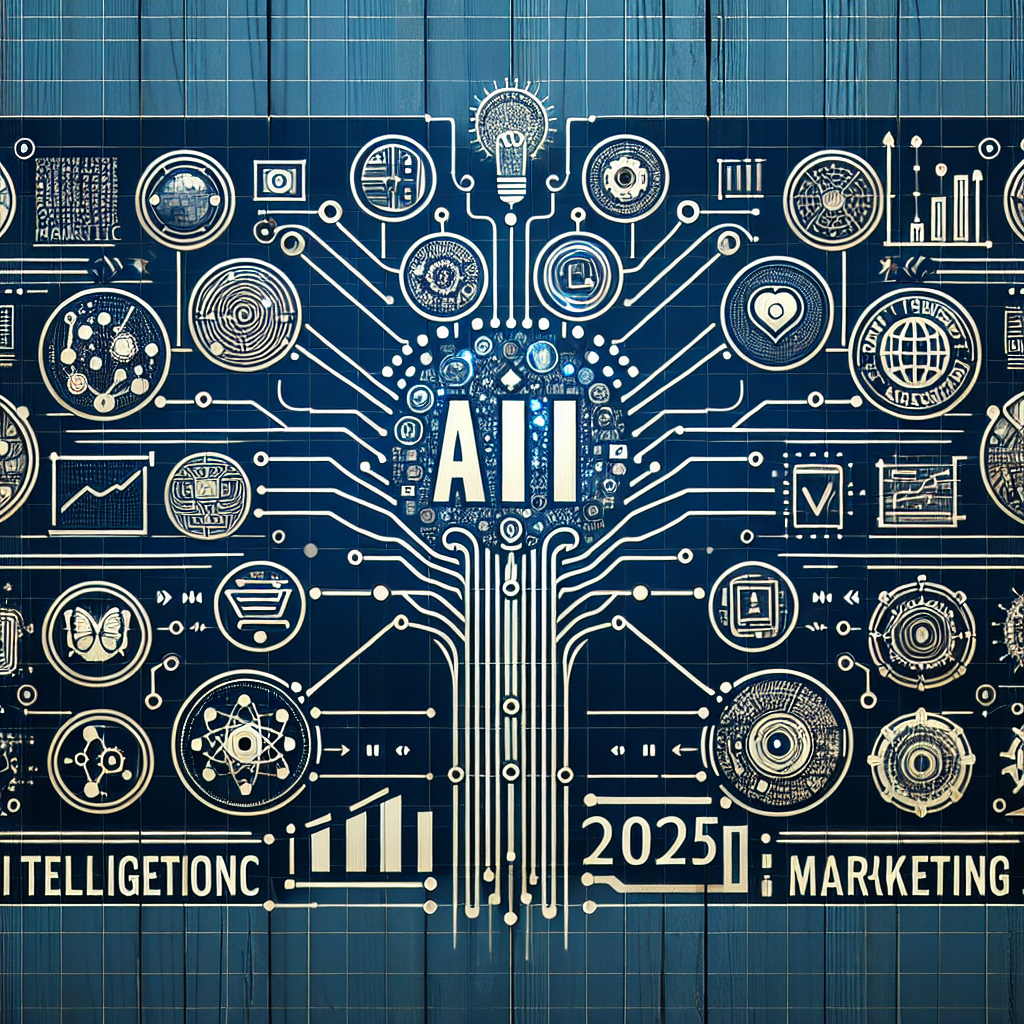The marketing landscape is evolving at a staggering pace, particularly with the advent of innovative technology. Artificial Intelligence (AI) is one such technology that is revolutionizing the marketing domain. As we look towards 2025, we find that AI marketing strategies are becoming increasingly essential for businesses to stay competitive. Here, we will delve into the top 10 proven AI marketing strategies projected for 2025.
1. Personalized Marketing
AI enables marketers to create personalized experiences for each customer. By analyzing customer data, AI can predict what a customer is likely to want, need, or do in the future. This means you can tailor your marketing efforts to individual customer preferences, improving engagement and conversion rates.
Pros and Cons
- Pros: Higher customer engagement, increased customer loyalty, improved conversion rates.
- Cons: High initial implementation cost, potential privacy concerns.
2. Predictive Analytics
Predictive analytics is a technique that uses AI to analyze historical data and predict future trends. This can be used in marketing to forecast future customer behavior, market trends, and sales patterns, enabling businesses to make data-driven decisions.
Pros and Cons
- Pros: Enhanced decision making, increased efficiency, improved customer satisfaction.
- Cons: Requires large amounts of data, accuracy depends on the quality of data.
3. AI Chatbots
AI chatbots are set to become an integral part of customer service by 2025. They provide instant responses and 24/7 availability, improving customer experience and freeing up time for human customer service representatives to handle more complex queries.
Pros and Cons
- Pros: Improved customer experience, increased efficiency, 24/7 availability.
- Cons: Limited understanding of complex queries, potential privacy issues.
4. Content Creation and Curation
AI has the ability to create and curate content based on specific parameters. By 2025, AI will be able to write blog posts, create social media updates, and even generate video content. These tools will save marketers a significant amount of time and resources.
Pros and Cons
- Pros: Saves time and resources, can create high-quality content at scale.
- Cons: May lack the human touch, requires high-quality input data.
5. AI-Driven SEO
AI is transforming SEO strategies by automating keyword research, optimizing content, and providing actionable insights. This will help businesses improve their search engine rankings and attract more organic traffic.
Pros and Cons
- Pros: Improves search engine rankings, increases organic traffic.
- Cons: Requires ongoing maintenance, may be expensive to implement.
6. Programmatic Advertising
Programmatic advertising involves using AI to automate the buying and selling of ad space. This increases efficiency and allows for more precise targeting, leading to improved ROI on advertising spend.
Pros and Cons
- Pros: Improves efficiency, enables precise targeting, increases ROI.
- Cons: Can be complex to set up, potential for ad fraud.
7. Voice Search Optimization
With the rise of voice assistants like Amazon’s Alexa and Google’s Assistant, voice search optimization is becoming increasingly important. AI can help marketers optimize their content for voice search, making it easier for customers to find their business.
Pros and Cons
- Pros: Makes content more accessible, improves customer experience.
- Cons: Requires specific optimization techniques, may require additional resources.
8. Sentiment Analysis
AI can analyze social media posts, customer reviews, and other online content to determine the sentiment behind them. This can help businesses understand how their customers feel about their brand and products.
Pros and Cons
- Pros: Provides valuable customer insights, helps manage brand reputation.
- Cons: Can be difficult to interpret, may require large amounts of data.
9. Visual Search
AI can analyze images to understand their content and context. This can be used in visual search, where customers can search for products using images instead of text. By 2025, this could become a standard feature of ecommerce websites.
Pros and Cons
- Pros: Improves customer experience, increases conversion rates.
- Cons: Requires advanced technology, may be expensive to implement.
10. Intelligent Automation
AI can automate many marketing tasks, such as email marketing, social media posting, and ad bidding. This not only saves time but also improves accuracy and efficiency, leading to better marketing outcomes.
Pros and Cons
- Pros: Saves time, improves accuracy, increases efficiency.
- Cons: Requires initial set up, potential for errors if not monitored.
FAQs
1. What is AI marketing?
AI marketing involves the use of artificial intelligence technologies to improve marketing strategies and outcomes.
2. How does AI improve marketing?
AI can improve marketing in many ways, including personalizing customer experiences, predicting future trends, automating tasks, and providing actionable insights.
3. What are the potential downsides of AI in marketing?
While AI has many benefits, it also has potential downsides, such as high implementation costs, privacy concerns, and the potential for errors if not properly managed.
4. How can businesses prepare for the rise of AI in marketing?
Businesses can prepare for the rise of AI in marketing by investing in AI technologies, training their staff to use these technologies, and integrating AI into their marketing strategies.
